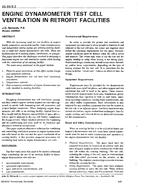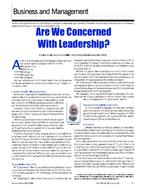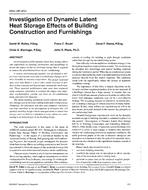A steady-state simulation model of a water-to-water, vapour-compression-cycle heat pump operating under superheat control is presented. The model is derived entirely from the basic conservation laws of mass, energy, momentum, and equations of state as well as fundamental correlations of heat transfer. The model incorporates a refrigerant charge inventory in addition to the normal thermodynamic energy balance of the system. The model is derived from basic principles so that it can be used to predict system performance over the full operating range of a heat pump. The simulation algorithm was developed with the objective of requiring input data that are readily available to the design engineer while not constraining system operation. Input data include external operating conditions, refrigerant charge, component geometry, and compressor characteristics. Model predictions were compared to experimental data. Good agreement was found for the cases studied. Results indicate that the superheat of the refrigerant leaving the evaporator and the refrigerant charge can be used as control variables to maximise system performance.
KEYWORDS: calculating, superheating, water water heat pumps, heat pumps, controls, refrigerants, performance, vapour compression heat pumps, algorithms, comparing
Citation: ASHRAE Trans. 1992, vol.98, Part 2, Paper number 3615, 172-184, 12 figs., refs.
Product Details
- Published:
- 1992
- File Size:
- 1 file , 1.4 MB
- Product Code(s):
- D-17766


